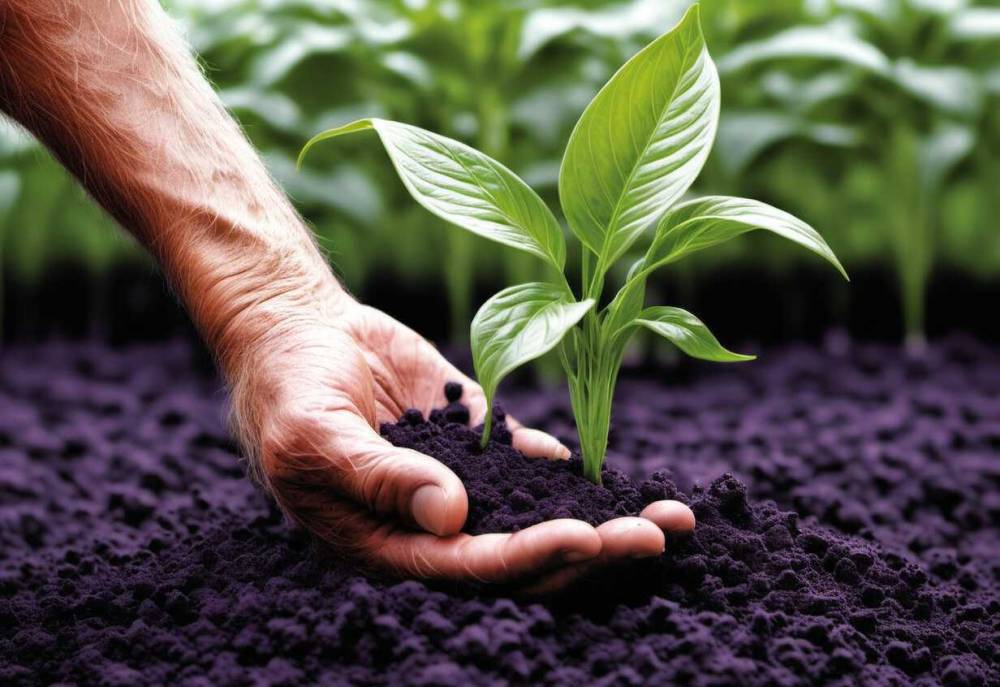Plants, like humans, are born, grow, and develop. The process of providing the necessary nutrients for plants to grow healthily and yield the desired results is known as plant nutrition. The processes applied to the soil, as well as to the plant itself, also affect the plant's nutrition process. In this blog post, you will find detailed information about plant nutrition processes and products.
How is Plant Nutrition Done?
There are several important factors to consider for healthy plant growth. These include ventilation, fertilization, irrigation, sunlight angle and duration. So, how is plant nutrition done? It involves providing the nutrients that plants need at the right time, using the correct methods and quantities. Here are the key points to consider:
- Soil Structure: The soil structure that the plant comes into contact with is the most critical aspect of nutrition. You should definitely analyze whether your soil is compatible with your plant. The soil's pH value and the amount of organic matter it contains are important factors.
- Plant Observation: Start by observing your plant in the compatible soil structure. Factors like the plant's growth rate and color changes can provide a lot of information. You should accurately identify the nutrients provided by the soil and those needed by your plant. For instance, some plants may require more nitrogen, while others may prefer more phosphorus.
- Fertilizer Selection: You can choose between organic and chemical fertilizers based on your plant's needs. If you want quick results, chemical fertilizers are ideal for your plant! Organic fertilizers are derived naturally and their effects are spread over time, enriching the soil and, consequently, the plant in the long run. Choosing the right fertilizer for your needs is crucial. Additionally, you should consult experts to determine the appropriate dosage and timing of the fertilizer.
- Irrigation System and Schedule: After fertilization, it is essential to focus on irrigation. You must pay attention to the irrigation schedule to ensure that the fertilizer penetrates the plant effectively. Over-irrigation can lead to the leaching of the fertilizer and the inability to nourish the plant. Proper and regular watering is necessary.
Plant Nutrition Products
Choosing plant nutrition products based on their components and elements is the healthiest approach. In this regard, you can more easily identify and address the elements your plant needs.
-
Macro Nutrients:
- Nitrogen (N)
- Phosphorus (P)
- Potassium (K)
- Calcium (Ca)
- Magnesium (Mg)
-
Micro Nutrients:
- Chlorine (Cl)
- Molybdenum (Mo)
- Copper (Cu)
- Zinc (Zn)
- Boron (B)
- Iron (Fe)
- Manganese (Mn)
Benefits of Plant Nutrition
Properly nourished plants yield higher productivity. Higher quality plants are preferred by consumers. Increased yield reduces costs and minimizes losses. Nutritional practices done in correct dosages and at appropriate times minimize environmental impacts. The quality of the soil improves and becomes richer. The plant's immune system strengthens, and protein and vitamin levels rise. Photosynthesis occurs more healthily.
Plant Nutrition Methods
- Soil Application
- Foliar Fertilization
- Fertilization via Irrigation
- Inorganic – Organic Fertilization
At Sector Tarım, we produce plant nutrition products that meet international standards for your plants. You can contact us with any questions you may have.
